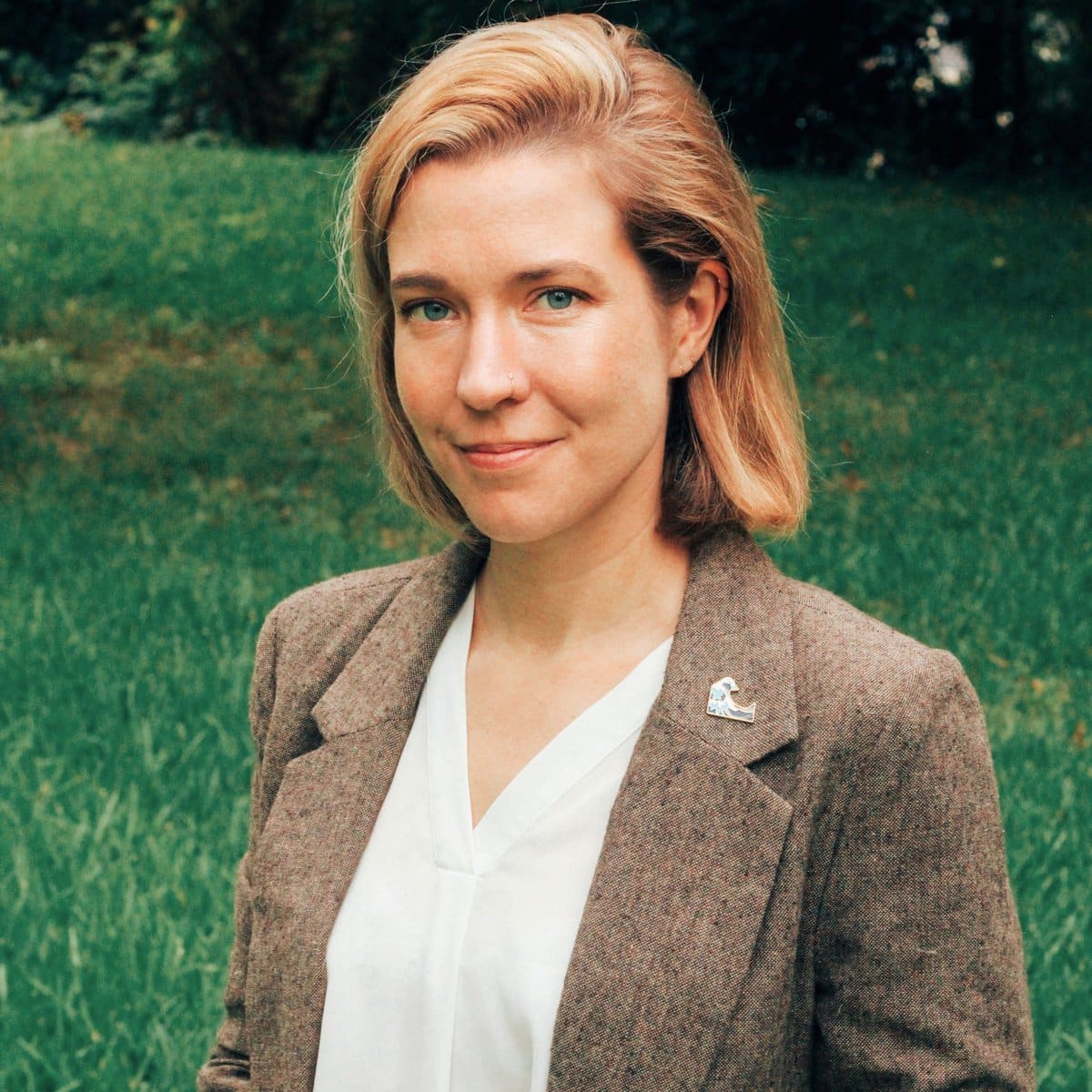“The Ocean holds the keys to an equitable and sustainable planet. Join the revolution to unlock innovative ocean science solutions.” That is the opportunity and challenge posed by the Ocean Decade, the United Nations Decade of Ocean Science for Sustainable Development (2021–2030). Launched in January 2021, the Ocean Decade provides a convening framework for a wide range of stakeholders across the world to engage and collaborate outside their traditional communities to trigger nothing less than a revolution in ocean science. This is clearly a topic to explore on the Engineering With Nature® Podcast.
In Season 6, Episode 3, host Sarah Thorne is joined by cohost Amanda Tritinger, Research Hydraulics Engineer in the Coastal and Hydraulics Laboratory of the Engineer Research and Development Center, US Army Corps of Engineers (USACE). Amanda was recently named Deputy Program Manager for EWN. Together they welcome Courtney McGeachy, Director of the Ocean Visions – UN Decade Collaborative Center for Ocean-Climate Solutions.
As we learned in Season 4 Episode 1, Amanda is absolutely passionate about coastal resilience and the important role oceans play in climate change. Amanda fell in love with the coast, which led to her PhD and ultimately her work with USACE, where she has been applying math and science to make the world a better place by helping coastal communities thrive. Amanda and Courtney recently met at the State of the Coast Conference in Louisiana where they were on a couple of panels together, including one discussing nature-based solutions (NBS). Amanda thought Courtney would be an inspiring guest, and she certainly was.
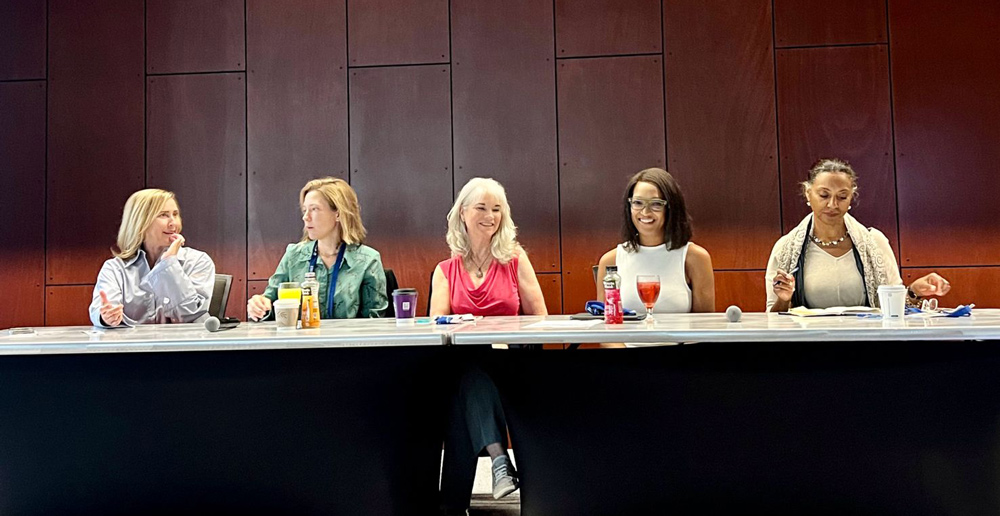
Courtney grew up in Columbus, Ohio, and from a young age she has been very interested in nature. She received a Bachelor’s degree from the Marine Science program at Hampton University, followed by a Master’s degree in fish behavior at the University of Maryland Eastern Shore. She started her career in environmental policy working at the National Fish and Wildlife Foundation in Washington, DC, then broadened her environmental interests internationally by joining the Pew Charitable Trusts, followed by work with Conservation International, where she was involved with their partnership with the Global Environment Facility. Then, as she describes it, “Ultimately the ocean kept calling, as I think it calls to everyone. So, I came back to the ocean and accepted this position to direct the Ocean Visions – UN Decade Collaborative Center for Ocean-Climate Solutions.”
The Ocean Visions – UN Decade Collaborative Center is a partnership with Ocean Visions, Georgia Tech, and the Georgia Aquarium. “The Georgia Aquarium gets three million visitors a year or so. It’s really exciting to see everyone from 9-year-olds to 90-year-olds come to the aquarium to be informed about what’s happening in the ocean solution space.” Courtney describes Ocean Visions as a nonprofit startup focused on innovations and solutions for the fight against climate change. “We really operate exclusively at the ocean-climate nexus. We absolutely recognize that observation, monitoring, modeling, and research collaboration are all extremely important pieces of the puzzle. We focus very heavily on implementing and catalyzing innovations and solutions … essentially leveraging the power of the ocean to fight climate change.”
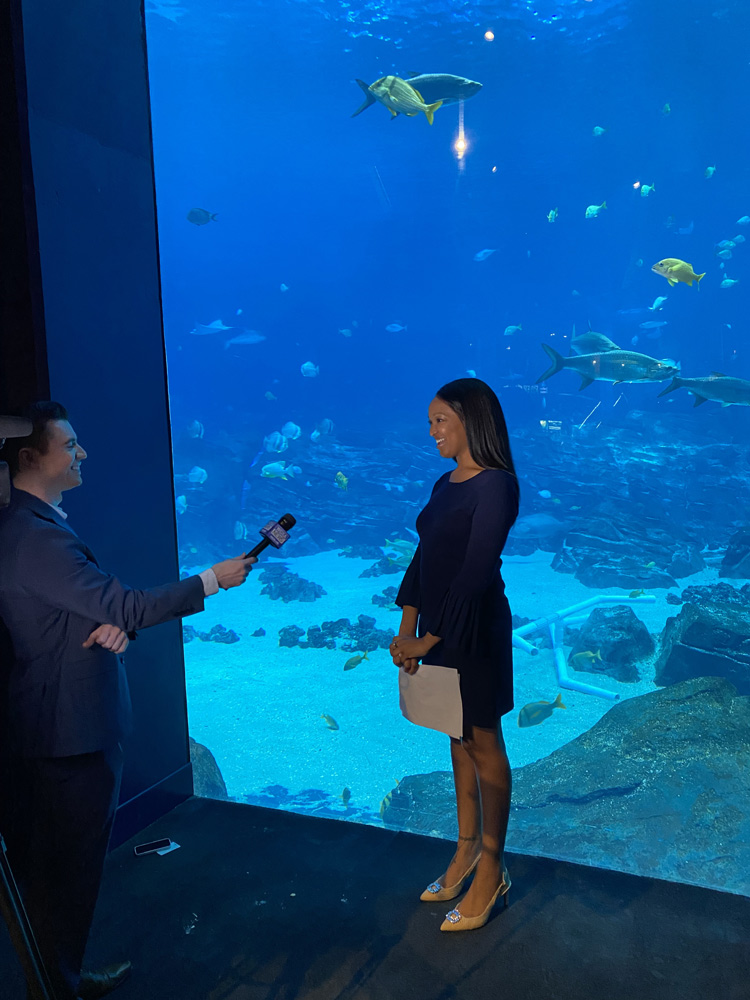
Ocean Visions focuses on what they refer to as the “Four R’s”– reduce, remove, repair, and reach. “What I do as Director of the UN Decade Collaborative Center is to focus on bringing international visibility to these innovations and solutions, sharing those with the world, not just within the framework of the UN Decade. Capacity-building opportunities, continuing education opportunities, professional development for the new generation of ocean-climate solutionists that are coming, that’s something that we’re really passionate about.”
The UN’s Ocean Decade is designed to take us from “the ocean we have to the ocean we want.” There are 10 decade challenges and 375 decade actions, implemented as projects and programs under the Ocean Decade umbrella. As Courtney describes it, “The idea is that we are leveraging this framework to really make a difference before we get to 2030.” The Ocean Decade has seven desired “Ocean Outcomes,” including a clean ocean, a healthy and resilient ocean, a productive ocean, a predicted ocean, a safe ocean, an accessible ocean, and an inspiring and engaging ocean. “I think these were all important because they touch on not only everything that we need from a scientific lens but also what we need from a personal and community lens. There’s no point in making the ocean safe and healthy if it’s not accessible to all of us.”
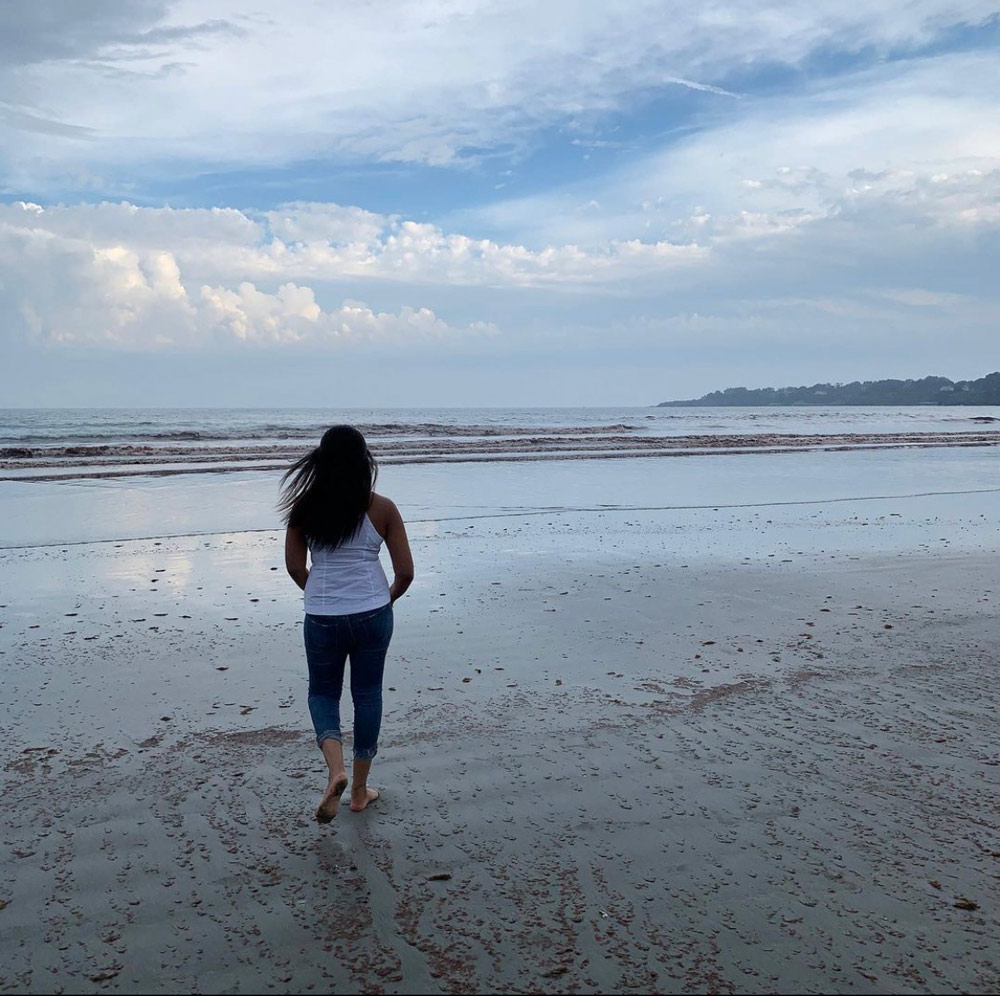
Amanda notes the value that these initiatives provide in helping to develop standards of practice and state-of-the-art science by “showing by example.” “The people that are behind these initiatives, including some really interesting natural-based solutions, are passionate about their work and will do what it takes; but the more often we can share what the framework is, the better. We really appreciate that because scientists like me and my colleagues want to implement, and we want to bring the state of the art to the state of the practice.”
Courtney notes that a lot of the innovation that she focuses on is related to carbon dioxide removal, specifically marine or ocean-based carbon dioxide removal, increasing ocean water alkalinity and thus its ability to absorb more carbon dioxide from the atmosphere. “When it comes to nature-based solutions, there are a lot of different opportunities. We know that nature-based organisms, such as mangroves, can store up to five times more carbon per hectare than a terrestrial forest. We want to make sure that we are creating opportunities to leverage these nature-based solutions such as salt marshes, seagrasses, and mangroves to help fight climate change. I think Jane Lubchenco said it best. We were sort of trying to change the narrative from the ocean being a victim to the ocean being a solution to help us fight climate change.”
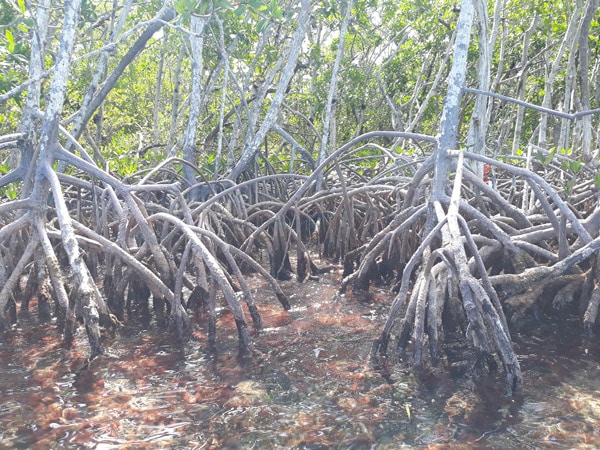
In closing, Sarah asks Courtney and Amanda summarize their “calls to action” for policy and decision makers. Courtney notes, “My call to action is to give innovations and solutions a fighting chance. By that, I mean that for most innovations and solutions we get stuck in the risk conversation. What are the risks? What are the negative side effects? With every solution, there are risks and side effects. So, I encourage policymakers to think of the ocean and climate crisis as a public health crisis because they’re quite similar. I would also encourage policymakers to find the resources. I would encourage domestically our government and policymakers to really step up to the plate financially.”
Amanda says, “My call to action would be to not put solutions into a box—consider this OR that. Why not both? The huge takeaway from this conversation is that there are cobenefits. Courtney mentioned that there’s a toolbox—a suite of tools—there’s no reason we can’t combine them. There’s redundancy in our resilient solutions that work together and, while protecting our communities, can also protect our citizens while helping to protect our ocean, which is our incredible resource that we might taking for granted right now.”






